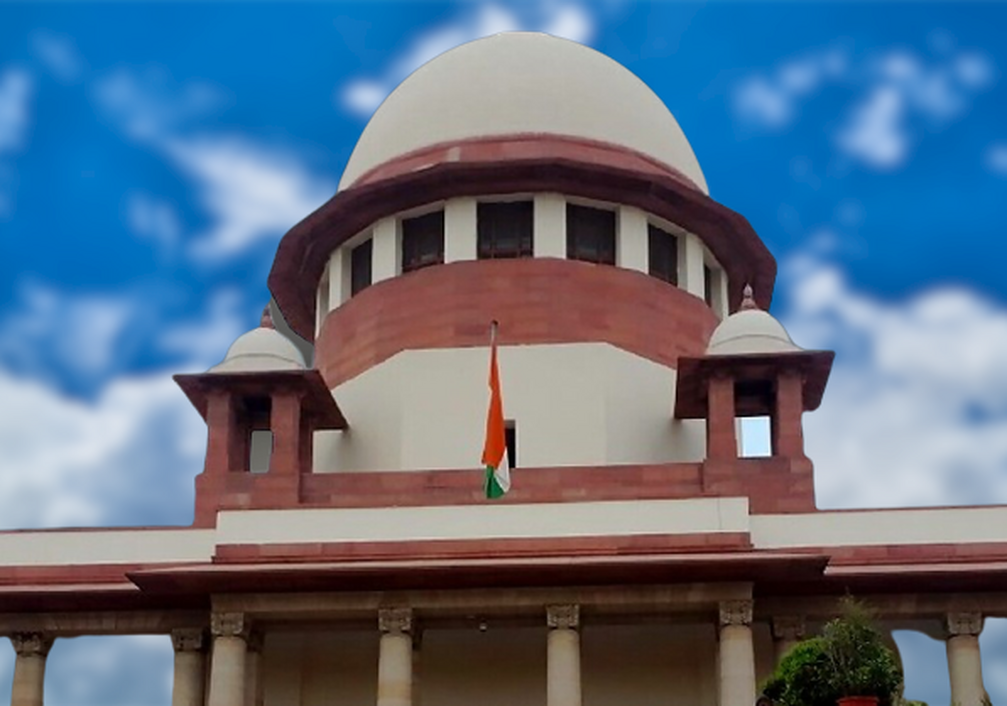Violation of status quo order in relation to possession of suit premises amounted to civil contempt u/s 2(b) of Contempt of Courts Act: Supreme Court sets aside HC order desisting from exercising contempt jurisdiction
Justices Aniruddha Bose & Sanjay Kumar [30-01-2024]

Read Order: Amit Kumar Das, Joint Secretary, Baitanik, a registered society v. ShrimatiHutheesingh Tagore Charitable Trust[SC-Civil Appeal No. 1405-1406 of 2024]
Tulip Kanth
New Delhi, January 31, 2024: Referring to its judgments in Sudhir Vasudeva vs. M.GeorgeRavishekaran [LQ/SC/2014/120]; Baranagore Jute Factory PLC. Mazdoor Sangh (BMS) vs. Baranagore Jute Factory PLC. [LQ/SC/2017/419]; Delhi Development Authority vs. Skipper Construction Co. (P) Ltd. [LQ/SC/1996/940] and Mohammad Idris vs. Rustam Jehangir Babuji [LQ/SC/1984/224], the Supreme Court has asserted thatin addition to punishing a contemnor for disobeying its orders, the Court can also ensure that such a contemnor does not continue to enjoy the benefits of his disobedience by merely suffering the punishment meted out to him.
The Division Bench of Justice Aniruddha Bose and Justice Sanjay Kumar was considering the scope and extent of the contempt jurisdiction exercised by a High Court under Article 215 of the Constitution of India read with the provisions of the Contempt of Courts Act, 1971.
ShrimatiHutheesingh Tagore Charitable Trust, Kolkata (Trust)was the plaintiff in the suit filed for declaration of title, recovery of possession and for damages. This suit was instituted by it against Baitanik, a registered society which was in occupation of the premises. The Trial Court decreed the suit and directed delivery of possession of the suit premises to the Trust within 30 days. Execution proceedings were initiated by the Trust. Meanwhile, the Society preferred an appeal which was thereafter renumbered before the High Court at Calcutta.
The High Court extended the time to deposit the sum of Rs10 lakh by a period of two months, but the said deposit was made only on 22.12.2010.Developments thereafter led to initiation of contempt proceedings by the Trust, alleging violation of the condition set out in the stay order. More particularly, it was alleged that the Society had resorted to letting out the suit premises for holding exhibitions. While considering this allegation, a Division Bench of the High Court at Calcutta concluded that the Society had, in fact, granted licences for short terms to third parties for the purpose of exhibitions, dances and other functions on payment of donations.
By a judgment dated 12.11.2014, a Division Bench of the High Court at Calcutta held that the act of the contemnor therein was in willful disobedience to the stay order passed in the first appeal and was not only contemptuous but also illegal and invalid. However, instead of initiating proceedings for contempt, the Division Bench opined that justice would be subserved by vacating the stay order passed in the first appeal. Aggrieved by this turn of events, the contemnor approached the Top Court.
It was the appellant’s case that it was not open to the High Court to vacate the stay order passed in the appeal in exercise of contempt jurisdiction. It was pointed out that no steps were taken by the Trust to seek such relief in the appeal and the High Court ought not to have resorted to such action in the contempt case.On the other hand, the Trust submitted that no steps were taken to revive the execution proceedings.
The Bench found that vacating of the stay order in the appeal by the High Court in exercise of contempt jurisdiction did not assume either a restitutive or a remedying character. Violation of the status quo condition in the stay order stood complete, even as per the High Court, and vacating of the stay order did not have the effect of restoring the parties to their original position or deny the contemnor the benefit of the disobedience which already stood concluded.
“Violation of a conditional stay order, in the usual course, would entail vacating thereof in a properly constituted proceeding. By resorting to such a step while exercising contempt jurisdiction, the High Court, in our considered opinion was not acting in furtherance of the principle adumbrated in the above decisions, the Bench held.
The Bench was of the view that the concluded act in violation of the status quo order in relation to possession of the suit premises amounted to civil contempt under Section 2(b) of the Contempt of Courts Act, 1971, and warranted appropriate consequences under the provisions thereof.
“However, without taking recourse to such a step, the High Court thought it fit to vacate the stay order in the appeal so as to enable the Trust to execute the decree. This action of the High Court clearly transgressed the scope and extent of its contempt jurisdiction and cannot be sustained. To that extent, the impugned order is set aside”, the Bench held.
However, as the High Court desisted from exercising contempt jurisdiction, owing to this misconceived measure, despite finding the contemnor guilty of willfully violating the status quo condition in the stay order, the Bench remanded the matter to the High Court for continuing with that exercise.
Allowing the appeal,the Bench further held, “…as the Trust asserts that the stay order stood vacated automatically owing to the default by the Society in making deposits, it is for the Trust to take appropriate steps. The Trust would be at liberty to take all such measures as are permissible in law in that regard, be it before the High Court or the executing Court.”
Sign up for our weekly newsletter to stay up to date on our product, events featured blog, special offer and all of the exciting things that take place here at Legitquest.




Add a Comment